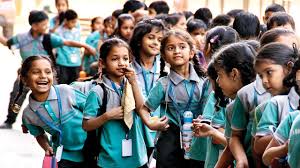
The Union Cabinet has approved the new National Education Policy (NEP) that is expected to set the roadmap for the sector keeping in mind present employment scenario. This policy comes after almost three decades, and post deliberation of almost six years.
Daily Current Affairs Quiz 2020
Key-Points
This is the third NEP after policies that came in 1968, and 1986. Though the government amended the 1986 policy in 1992, it was largely the same.
The draft policy promised more autonomy to higher educational institution. This will also set the ball rolling for regulatory reforms in the sector, a long pending demand, which was also a part of the Bharatiya Janata Party’s election manifesto in 2014.
The draft has suggested solutions for early childhood and primary education. The focus on basic understanding of language, and mathematics will help in improving the quality.
Besides, the new policy will promote diversity and comprehensive education structure to top universities and institutions and set up a research fund to promote R&D.
The new policy bats for extension of the right to education (RTE) act to all schools from pre-school to standard 12 instead of Class 1-8. It redraws the schooling system on a 5+3+3+4 formula instead of the current 10+2 model.
Students in the age group of 3-8 years will be part of the foundation stage, 8-11 age group for preparatory schooling, 11-14 years for middle school and 14-18 for secondary level.





